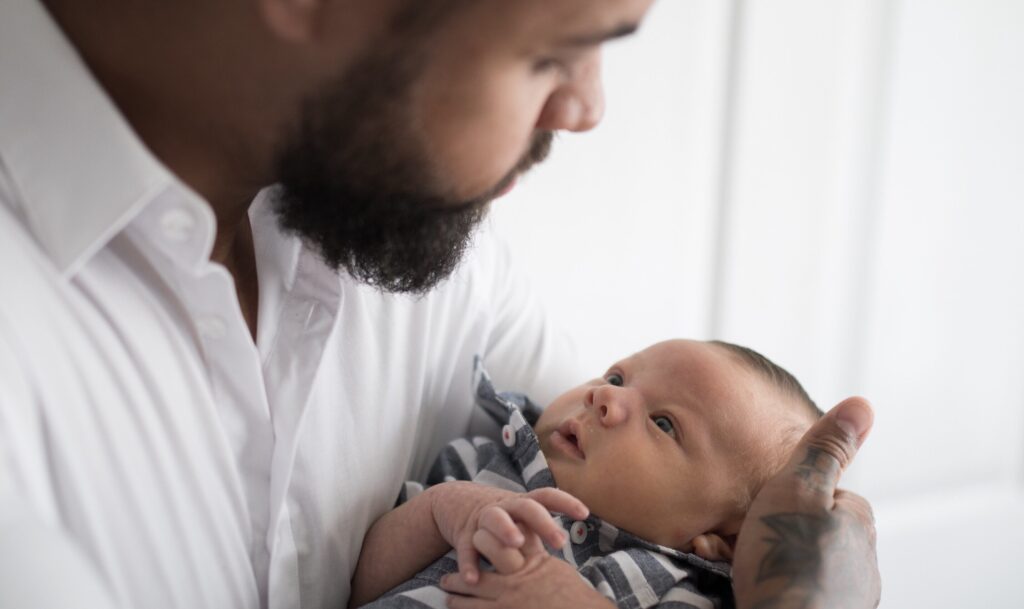By Ira Hillman, Einhorn Collaborative
At the end of 2021, more than two dozen funders came together for the first Early Relational Health (ERH) Funders Summit, co-sponsored by Einhorn Collaborative and the Center for the Study of Social Policy (CSSP). These funders created the ERH Funders Community with a goal of seeking opportunities for shared learning and connection to improve how we work together to advance early relational health and emotional connection between parents and their young children.
Since then, the ERH Funders Community (now numbering 100+ members – and growing!) has learned together through virtual events, connected in person at national funder gatherings, and hosted our own in-person ERH Funders Summit in Fall 2022 with nearly 40 funders joining 5 parent leaders for two days of connection and learning.
The ERH Funders Community shares a vision of a world where all parents can hold their children close and build a relationship rooted in deep emotional connection in the first hours, days, and weeks of their babies’ lives. Those same parents would also have time off from work – with pay – in order to continue strengthening their relationships with their children, creating habits of mutual, reciprocal, and responsive connection. Our communities would surround these families with organizations that help parents and babies repair and reconnect after moments of inevitable separation. Importantly, all families would be celebrated for the strengths they bring to their experience of early relational health – without judgment from family-facing organizations and professionals.
There is plenty of evidence that this is not the reality for many parents in our country who face numerous barriers that make it harder for them to maintain and re-establish emotional connection with their children. Only 23 percent of private sector employees – and 26 percent of local and state government employees – have access to paid family leave. One in six children ages 6-17 have a treatable mental disorder, but more than half never receive any treatment. One in seven mothers experience maternal depression and anxiety – and that number is much higher for women from low-income communities or communities of color. It is estimated that half of all children are not ready for school as they approach kindergarten age.
For decades, field leaders and funders have focused on developmental screening and kindergarten readiness as markers of child and family well-being. While those efforts have advanced a policy and community emphasis on Head Start, Universal Pre-K, and other efforts in early education, public officials have placed much less emphasis on the critical importance of foundational relationships between children and caregivers in the first weeks, months, and early years of life, until recently.
Research in recent years has shown that positive childhood experiences, including parent-child emotional connection, can buffer the effects of adverse childhood experiences into adulthood. Then, in 2021, the American Academy of Pediatrics released its new policy statement that advances a new focus on relationships in child health care:
“By focusing on the safe, stable, and nurturing relationships (SSNRs) that buffer adversity and build resilience, pediatric care is on the cusp of a paradigm shift that could reprioritize clinical activities, rewrite research agendas, and realign our collective advocacy.”
The time has come for early relational health to be a priority in our nation’s approach to child development and early learning. The benefits, though, are far greater than just kindergarten readiness. The multiple crises America has experienced in the last few years underscore how vitally important emotional connection is to human thriving.
We have an urgent need to address the pre-COVID epidemic of loneliness and isolation which the pandemic has only made worse. The principles of emotional connection, rooted in building the skills and habits of repair and reconnection, are life-long tools for individual and community well-being. As we look to transform systems in health care and early childhood, as well as heal and rebuild communities, it is through relationships and connection that the much-needed change will come.
New evidence continues to emerge that supports early relational health and emotional connection for families, and new partnerships are forming among researchers, providers, and funders that have the capacity to advance and scale widespread change. The philanthropy sector has a unique opportunity to help leverage the relational models that offer so many positive benefits to families. Funders can also invest in innovative research and collaborations that will unlock new models and opportunities that have yet to be discovered.
I invite my peers who represent private and public funding entities, as well as individuals who are pursuing their own philanthropic efforts, to join the Nurture Connection movement and become part of the ERH Funders Community on LinkedIn. Let’s connect with one another so that more parents and their babies can connect with each other.
